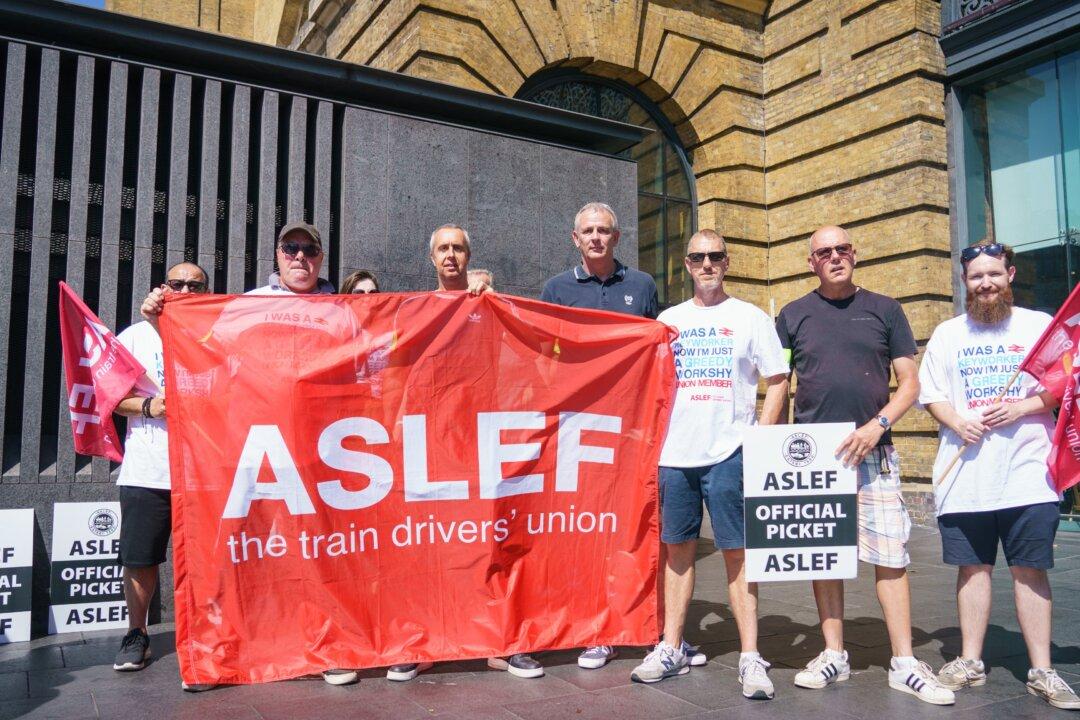Rail drivers union Aslef has agreed to hold formal talks with employers next week as drivers from nine train operators are staging a 24-hour strike on Saturday over ongoing disputes over pay, jobs, and conditions.
Aslef members from nine train companies walked out on Saturday, crippling large parts of the network, with some parts of the country having no services. It’s the fourth and the largest strike Aslef members have staged since last month.





